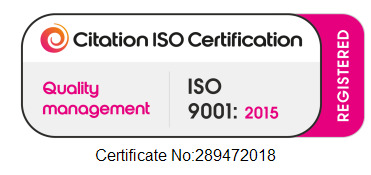
A Recycling Resource For Children
Recycling is the word we use to describe the process of re-using old items or materials to make them useful again. It’s something which is very important to everyone on our planet, as it helps to use less natural resources. There are all kinds of things you can do to help the environment, but recycling is one of the easiest and the most useful – it gives us all the chance to be kinder to our planet!
Did you know… ?

If you’re interested in starting a recycling project of your own, take a look at the following ideas:
Old school clothing

We all grow out of clothes at some stage, especially school clothing; so it’s a good bet that you’ll have something lying around which doesn’t fit anymore. Check out these recycling ideas.
How and Where?
- Alteration – ask one of your parents to make adjustments to your old uniform. If those trousers seem a bit short perhaps the hem can be lowered? Alterations could also be made to the waist if they’re a bit tight around your midriff.
- Pass it on – if you have a younger brother or sister your old school uniform might be a perfect fit for them. This might also be the case if you’ve got a friend who’s a bit smaller than you.
- Sell it on – find out about any local car boot sales in your area. You could also sell old uniforms online – loads of websites like eBay or GumTree are ideal for selling clothes.
- Donate – most boroughs have clothing banks. Some even have doorstep collection services. Ask your parents for more info about these. You could also donate outgrown uniforms to your local charity shop (click here to find your nearest charity shop).
What could it eventually become?
Throwing old clothes away is rarely a good idea. They’re often sent to landfill sites – unfortunately many types of clothes are made from materials which won’t decompose (rot away). So recycling is almost always the best option, especially when charity shops and clothes banks send them to people less fortunate.
Paper

You’ll go through a lot of workbooks and handouts during your time at school. If you’ve got any lying around which you don’t use any more, then why not make them part of a recycling project?
How and Where?
- Local recycling –most rubbish collection services allow for paper recycling. Don’t worry too much about removing staples as most paper mills can take care of this.
- Bedding for pets – If you’ve got a small pet, you could use old paper to line their cage. You could also shred it so that your pet has comfortable bedding. In this case, you should definitely remove the staples first!
- Doodle pads – Sometimes a piece of scrap paper can be very useful for writing down messages, especially when on a landline telephone. So tear some pages out of your old school workbook or handout and put them in a tray next to your telephone.
What could it eventually become?
In most cases, recycled paper is screened, cleaned of ink and things like staples removed. This is usually done at a paper mill which turns it into a pulp which is then transformed into paper all over again!
Food waste from packed lunches

Sometimes your packed lunch contains certain types of food that you’d rather not eat! Or maybe you’re just full-up. Try to take advantage of any recycling services your school has.
- School recycling – a lot of schools will have some kind of food recycling collection service in place. If you’re not too sure, it’s always a good idea to ask a teacher.
- Composting – you could also ask about setting up a composting scheme or a worm composter for food waste. This could include your teachers’ food waste, too. If you have a school garden this compost could be used as fertiliser to help plants to grow.
What could it eventually become?
When food waste is sent to landfill sites, gases are created which harm the environment. But the gases from recycled food can be used safely to power and heat our homes. And compost can be used as a natural fertiliser which can be really helpful to farmers.
Remember that there are some things that just can’t be recycled like wax paper, wrapping paper, cardboard lined with plastic and light bulbs. But don’t let this put you off. There’s loads of stuff which can be recycled and re-used. If you just focus on these things, you’ll really be helping the environment.
Fun Activities
It’s time to speak to a parent / guardian or teacher, as lots of these recycling activities will need a grown-up present.
Recycling doesn’t have to be chore. In fact, there are lots of activities that can encourage children to get involved in recycling while having fun and learning in the process. Here are a few ideas we’ve put together.
Make your own recycled paper

This is a great way of teaching youngsters about the paper-recycling process. Here’s what you’ll need:
- An iron.
- Newspaper.
- Water.
- Bucket.
- A square pan.
- Window Screen.
- Measuring cup.
- Hand towels.
- Food processor/blender.
Instructions:
- Tear the old newspaper into small pieces and put them in a bucket of water. Leave them to soak for half an hour.
- Grab a handful of soaked newspaper and put into the blender/food processor, mixing it until it turns to mush.
- Pour the blender’s contents into a measuring cup and add about 3cm of water to the square pan.
- Place the window screen in the square pan and pour a cup of pulp onto the screen.
- Spread the pulp evenly across the window until it feels mushy.
- Lift the screen out of the pan, allowing the water to drain off.
- Lay the screen, which should be covered in pulp, face-down onto a hand-towel. Carefully remove the screen leaving the pulp on the towel.
- Cover the pulp with another towel and iron it (you could also use a rolling pin).
- Allow the pulp to dry for 24 hours.
- Put your recycled paper to good use!
The Rubbish Collection Challenge

Visit a local public space such as a park or even your local beach and challenge the kids to a rubbish collection race. Who collects the most rubbish in 30 minutes wins. You’ll be helping the children to become more aware of the effects of littering while providing a service to your local community.
Artistic Recyling

Turning waste into something that looks pleasing on the eye can be a very satisfying process, for both adult and child. Here are some ideas:
- Workbook pages can be put together like murals and frames, preserving a youngster’s schoolwork in an artistic way.
- Car hubcaps don’t have to be discarded. A few licks of colourful paint can transform your typical wheel-trim into a wacky, vibrant garden ornament!
- Old bottle corks can be turned into casters and trays with some string or elastic.
Musical Waste

- Turning waste into musical instrument is actually an easy process, provided you focus on percussion rather than brass or woodwind, where things can get a little bit more complicated.
- Discarded plastic containers are great for making drums and because of the different shapes and sizes can produce a variety of sounds for children to enjoy.
- Flexible plastics or other materials can be stretched over containers and fixed in place to add a sense of realism to your makeshift, recycled instrument.
Public Speaking Competition

Although daunting for some children, public speaking can be a useful way of impressing upon youngsters the importance of recycling. Turning the activity into a competition often encourages children to go out of their way to find out as much information they can about things like recycling and the impact of excess waste on the world – this can be a great learning tool for school pupils.
If you give any of these a try, or your have any questions, we’d love to here from you! Why not get in touch!












